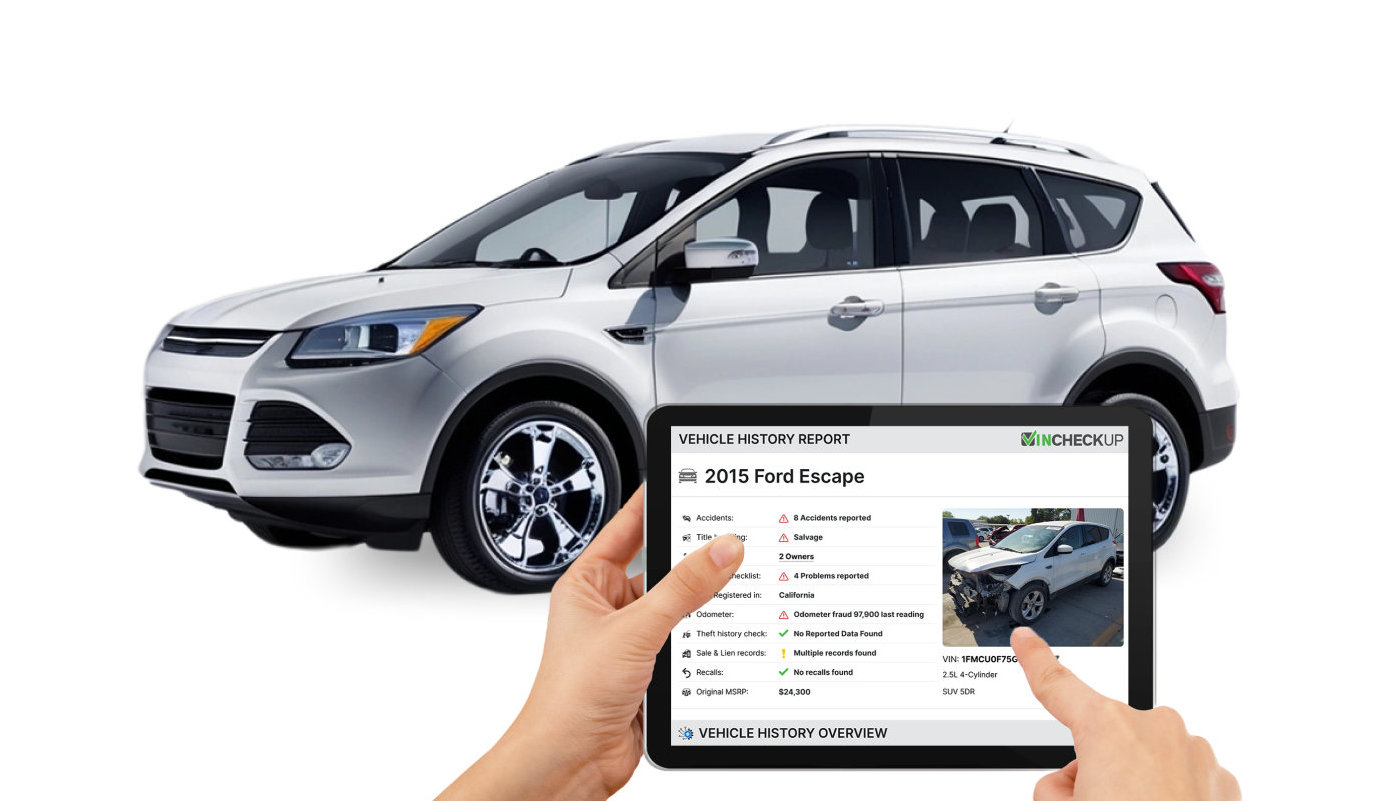Please check your VIN to make sure it's valid and try your search again.
VIN must be made up of exactly 17 characters and belongs to a vehicle manufacturer after 1980.
Reports available on Cars, Trucks, Vans, RVs and Motorcycles.



"Have to say I am surprised how much valuable information you guys were able to give me. Thanks a lot." - John K.
Purchasing a car is among the largest purchases people make. Needless to say, there is a lot of money on the line and it is imperative that you make the right decision and do not end up buying someone else's problem. To safeguard yourself from potential problems, it is important to approach the multifaceted process of purchasing a pre-owned vehicle methodically. Taking into account all of the unique legal and environmental risks and challenges that come with purchasing a car in the state of Oregon.
The state of Oregon is home to frequent storms and adverse weather conditions, causing floods and treacherous driving conditions. Thunderstorms tend to be more frequent and can produce hail, strong winds and lightning. These weather events can cause road erosion and potholes and create slippery driving surfaces, making weather related car accidents and damage quite common in the state. A lot of these damaged vehicles will eventually make their way to the used car market. Car classifieds are full of vehicles with hidden problems. Anything from a minor fender bender to extensive water damage causing the insurance to write off the vehicle as a total loss can be cleverly hidden under a coat of fresh paint.
In addition to damage caused by collisions and storms, a lot of the vehicles in the state of Oregon may show signs of premature suspension related failures. The state of Oregon's roadways features varied terrains, including many unpaved rural roads, coastal areas and forests. Uneven and pothole ridden roadways can take a serious toll on a vehicle's suspension, steering and tires.
The state of Oregon also mandates emission testing. The state has strict emissions standards, particularly in the Portland and Eugene-Springfield areas. The state requires all cars to pass an emissions test before they can be registered. Keep in mind Oregon does not have Lemon law protection for used cars, so it is up to the buyer to ensure the vehicle is free of defects and will meet state's legal mandates.
Knowing the unique issues plaguing Oregon used vehicles, there are 2 things you can do to help safeguard you interests and stay clear of any potential used car buying pitfalls.
Having the vehicle professionally inspected by a trusted auto technician is an absolute must when buying a pre-owned vehicle. The inspector may uncover things not clearly visible to the untrained eye. Damage from past collision related repairs, water damage and mechanical and suspension damage are just a few of the things that the technician will be able to uncover.
Depending on the severity of the damage and quality of the previous repair, not all these flaws may be considered as complete deal killers. Knowing the truth about the vehicle’s condition can put you in a better place for negotiating by helping you understand the vehicle's true value and long-term reliability. Determining whether to walk away from a car with a history of past damage will depend highly on the severity of the damage and your overall risk tolerance. You must consider all risks and factors, from price to future resale value.
When shopping for a pre-owned automobile, a Vehicle History Report should be your primary go to research tool. A Vehicle History Report in Oregon can provide a slew of pertinent information about the vehicle’s factory options, colors and drivetrains as well as detailed historical data surrounding various events such as sales, accidents, weather damage events, odometer discrepancies and various title related records. Additionally, a Vehicle History Report can provide a unique insight into a vehicle’s potential condition and value based on the number of owners, mileage and service history, as well as images of the vehicle captured from previous for sale listings and auctions.
To get your Vehicle History Report in Oregon is easy. The first thing you will need is to locate your Vehicle Identification Number or VIN for short. This unique 17-character number acts as the vehicle’s serial number and is used to track the vehicle through various events reported by insurance companies, National Motor Vehicle Title Information Services, DMVs, dealerships, manufacturers and private businesses.
All cars and trucks manufactured after 1984 are required to have standardized VINs that are made to be validated through a mathematical equation. By law, the VIN is pertinently imprinted or engraved on multiple structural locations on the vehicle’s body and drivetrain. The most common locations where the VIN can be found are on the driver’s side interior dash panel and inside the driver’s side door jamb. It can also be found on the car's title document, registration and insurance.
Buying a car in Oregon requires careful consideration of the state's unique climate, terrain and legal requirements. By setting a budget, understanding the car's history, having it professionally inspected, and negotiating a fair price, you can make a more informed decision and find a reliable and cost-effective vehicle.
Growing Population
with over 4 million people currently living in OR
4 million+
registered vehicle in OR
1 in 5 cars for sale in OR
has had a previous accident
1 million+
vehicles sold in OR annually
Conducting a simple VIN check before purchasing a vehicle is a crucial move that may help you avoid potential problems and future expenses. Taking this step may give you the opportunity to:
In today's market, transparency is everything. By checking the VIN, you equip yourself with the knowledge to make an informed choice, safeguarding your investment and ensuring you drive away with confidence.